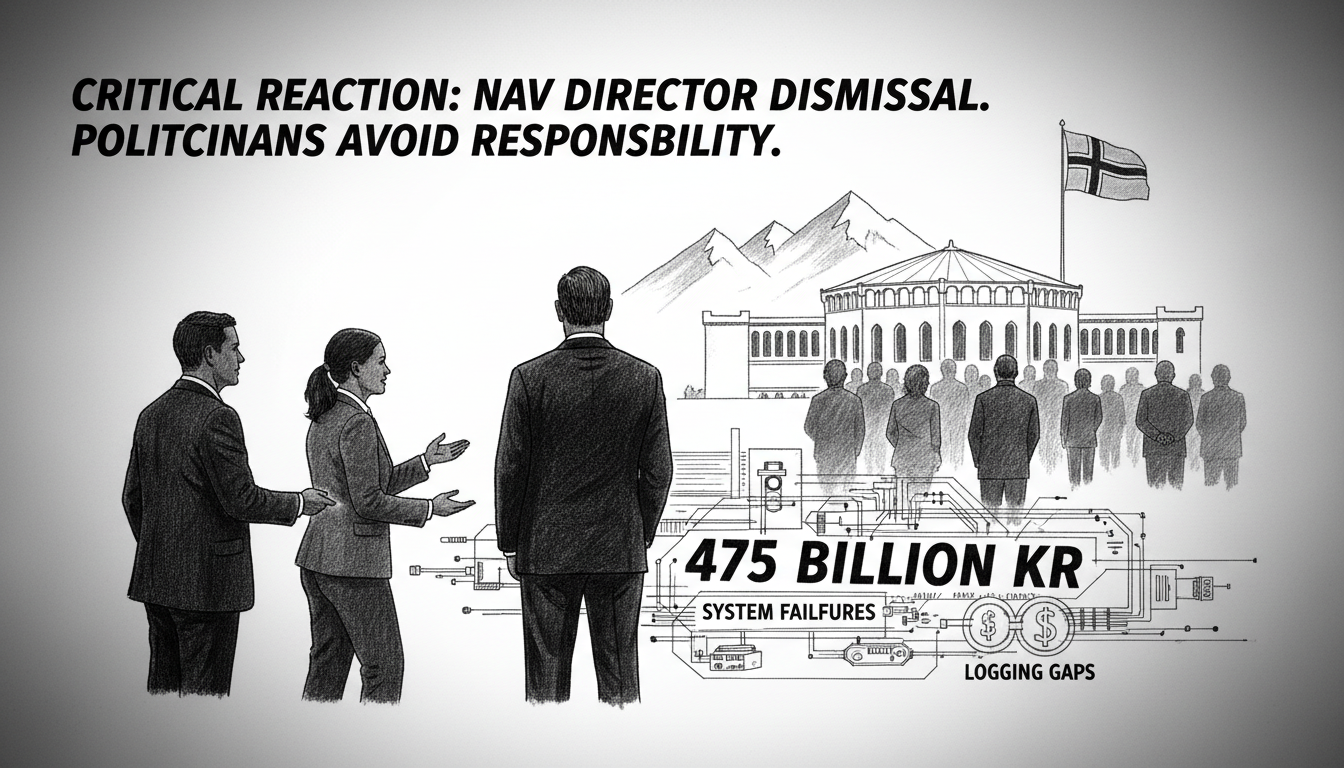Norway's Labour and Inclusion Minister dismissed NAV director Hans Christian Holte on Tuesday following severe criticism from the National Audit Office. The decision has sparked strong reactions from union leaders who question whether removing the director addresses the underlying issues.
Aleksander Berget, leader of Akademikerne NAV, expressed deep concern about the dismissal's timing and implications. He stated that while the seriousness of the situation isn't questioned, the solution may not serve Norway's best interests. The criticism centers on inadequate logging in IT systems managing 475 billion Norwegian kroner, representing a breach of internal control regulations.
NAV had assured both the ministry and auditors that proper logging systems were activated until March 2025, but this information proved incorrect. The agency disclosed the inaccuracy on September 10, prompting immediate political action.
Berget emphasized that political leadership must share responsibility for NAV's resource situation. He noted that budgets are politically approved, yet politicians appear unwilling to acknowledge their role in the agency's challenges. The union leader expressed frustration that accountability seems to stop with the director rather than extending to those who set the framework and funding.
The sudden departure raises concerns about continuity in NAV's vital work. Berget praised Holte's collaboration with organizations despite turbulent periods, describing him as a premise provider for effective cooperation. He argued that continuity considerations should outweigh the need for symbolic leadership changes.
Torgeir Homme, leader of the NTL union within NAV, echoed these concerns about uncertainty following the abrupt leadership change. He highlighted several major processes initiated under Holte's direction that now face potential disruption. Homme expects political leadership to assume responsibility for addressing the audit office's findings rather than placing full blame on the departing director.
The former political responsibility for NAV rested with Tonje Brenna, now parliamentary leader for the Labour Party. She stated that weaknesses identified through the audit process were immediately addressed with close ministerial oversight. Brenna received repeated assurances that errors were corrected and technical change logging was activated, making the inaccurate information particularly serious.
Labour and Inclusion Minister Kjersti Stenseng defended the decision in an email statement, emphasizing the necessity of reliable information from NAV and proper internal controls. She stated the director's dismissal resulted from providing incorrect information to both the ministry and auditors, with insufficient internal control representing a serious failure that required leadership accountability.
The ministry has initiated an external review of NAV's internal control systems. Findings and recommendations will guide the new director's work. Stenseng acknowledged the quality work performed throughout NAV's large organization, where employees help thousands of people with varying needs daily.
This situation highlights the tension between political accountability and administrative responsibility in Norway's welfare system. The National Audit Office serves as a crucial control mechanism for public fund management, but its findings often trigger complex questions about where responsibility truly lies when systems fail. Norway's tradition of consensus-driven politics faces testing when audit revelations demand clear accountability assignment.
The coming months will reveal whether political leadership engages more deeply with NAV's operational challenges or whether director changes alone constitute the primary response to systemic issues. International observers of Nordic governance models will watch how Norway balances administrative accountability with political responsibility in this high-profile case.

